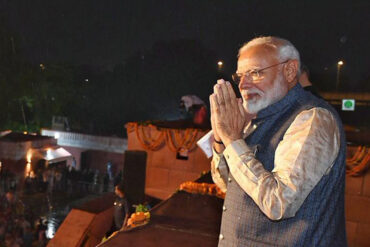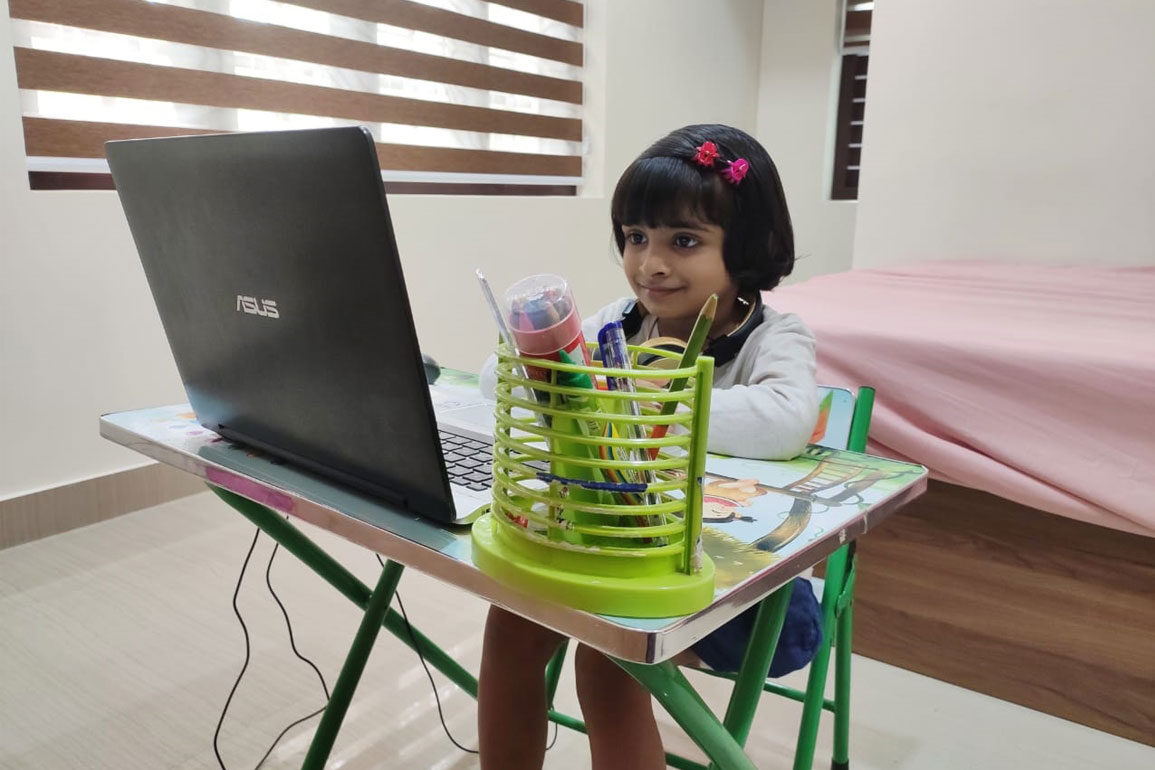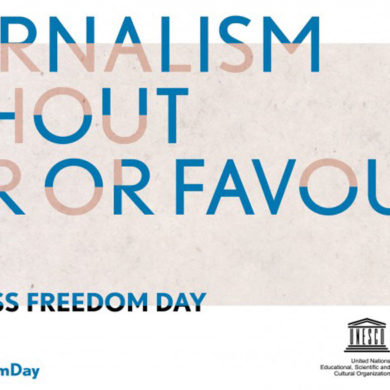To Kerala belongs the distinction of being the first to set off with on-line classes for the whole spectrum of school students. Every new idea or initiative goes through three stages of public reaction. The first is opposition or scepticism. The second, indifference. Third, the posturing: “Well, there is nothing new about this, after all.” The introduction of a new measure also brings to light latent fissures and deprivations in the system.
First, the obvious thing about online learning. This is a desperate measure. Desperate measures are rarely perfect. In many instances they aren’t adequately thought-out. Even otherwise, there are no perfect measures in this world. Every advantage implies a disadvantage; every step forward, also a step backward. All that we can do, therefore, is to assess a measure on the balance. Do its gains outweigh its drawbacks?
Admittedly, this is an unprecedented facility. The gulf between learning and educational technology has been narrowing. For a while the dependence of students on teachers as the sources of knowledge has been declining. But it has taken a pandemic to cut the cord between students and the physically-present teachers in classrooms. Let us consider a few of its salient aspects.
Prior to this, classroom transactions happened in near-total privacy. There were no intruders or eavesdroppers vis-à-vis the academic space. Only students knew the quality of the work teachers did in classrooms. Teachers, on their part, did not have to worry that they stood exposed to public view. This has changed; and changed, I believe, for the better. The fact of greater exposure to public view could motivate teachers, who prepare the learning modules, to be more quality-conscious. So, in terms of contents, there could be a gain.
Equally welcome is the prospect of the standardisation of instruction. Education in the Indian context is riddled with inequalities. So, education serves to aggravate inequalities. Now, students across the state have the opportunity to benefit from the same level and quality of instructional material and expertise.
Students in rural areas, provided that adequate facilities are ensured for them, could save on travel time insofar as they don’t have to commute to and fro schools. This saves their energy too, at least a part of which could be invested in learning. This could also mitigate other markers of inequality like clothes, food, footwear, means of transport, besides the looks of students. (‘Fair and lovely’ will cease to matter in the learning milieu.)
It is necessary at this point to look a little deeper into what the evaporation of teacher-taught relationship entails to the learning process. How will the goals of education be affected by this radical change?
It is not as if we have been mindful of the avowed goals of education these many years. With each step in educational reform we have retreated more and more from these goals. Consider ‘character-building’ for example. We have no concept of ‘character’, and all that happens in this regard is that heads of institutions issue ‘certificates of character and conduct’ to outgoing students, in a most nonchalant and mechanical fashion. It is obvious that student-teacher relationship and the general ambience of the educational institution play a role in the formation of the character of learners. All that ‘virtually’ disappears now. (The pun is intended).
Let’s consider what this change in mode means, experientially. So far, learning depended mostly on oral teaching. Students learned ‘out of the mouth’ of their teachers. Now there is no teacher, in flesh and blood, before them. It is not far-fetched to suggest that learning online is analogous to reading. Let me explain.
The main difference between the spoken word and the written word is that the former—that is, the spoken word—is addressed to a specific audience which is physically present. There is a relationship of immediacy—an intuitive sense of back-and-forth—between the speaker and the listener; in this case, the teacher and the student. For a writer, her audience exists only in her mind. The speaker addresses human beings in flesh and blood. The writer addresses minds. Speaking has a touch of vitality that writing rarely achieves. Writing excludes, in particular, dialogic immediacy of interaction. Students cannot raise doubts or seek explanations. No teacher can know if what she is teaching is going home to her virtual students.
Ours is still predominantly an oral tradition. In the oral tradition of learning, the teacher-student relationship is all-important. A speaker who is not excited about this is bound to be a boring communicator. Students, who are conditioned in a predominantly oral tradition of learning, find themselves cast abruptly in a different tradition, which is, in its dynamics of conception and delivery, akin to the written word. I flag this not to discredit the initiative, but to argue that the path to its effective utilization needs to be prepared. Indeed, I admire the keenness of Kerala government to address the aftermaths of the corona outbreak, and to do all it can to ensure that its devastation is minimised.
The responsibility for this devolves not only on the government of Kerala, but also on the society as a whole. The distinction of Kerala, compared to other Indian states, is that Keralites are more aware and responsive. People-government partnership is our strength. The issues we are considering here, if addressed aright, could help consolidate this further. If online learning is to yield optimum dividends—its weaknesses minimised and strengths optimised—parents have to be active participants in this process. After all, the venue of learning has shifted from school to home. If so, parents too have to be partners in mission with teachers. And why not? It is a win-win situation for them. The alternative is for parents to abandon their children to TV sets! If only parents would participate in this process, this could mitigate the proverbial generation-gap. It is a fulfilling thing for parents and children to learn together.
The anxiety that many feel in this context is, ‘Will online learning undermine the reading habits of students?’ The truth is that their reading habits have been already weakened by excessive obsession with examination grades, aggravated further by burdensome syllabi. Obsession with examinations and general awareness are in inverse proportion. I have been astonished at the low level of general awareness and curiosity in the best of students, whom I have interviewed for admission to St. Stephen’s. The more outlandish their achievements in examinations, the poorer their awareness even of their immediate milieu.
We live in an age of specialisation and super-specialisation. This infection of specialisation, which makes individuals focus on tiny slivers of knowledge, has become the bane of learning at all levels. In the early years, it manifests itself as mastering the art of scoring in examinations. The so-called brilliant students are, in most cases, specialists in writing examinations; not keen, energetic learners.
As a result, the habit of general reading—reading for intellectual pleasure—weakens. The ascendancy of online learning may not improve the situation. It may not worsen, either. Especially, if parents encourage their children to read more and enlarge their awareness.
On the whole, I believe that the merits of online learning could outweigh its demerits, provided, as suggested, the process is prepared for and appropriate re-orientations are effected, which I hope happens. I believe that any tool is only as good as those who use it. So, the spotlight will remain, and should remain, on the human than on the technological.







